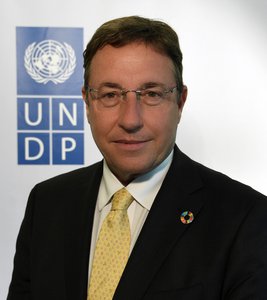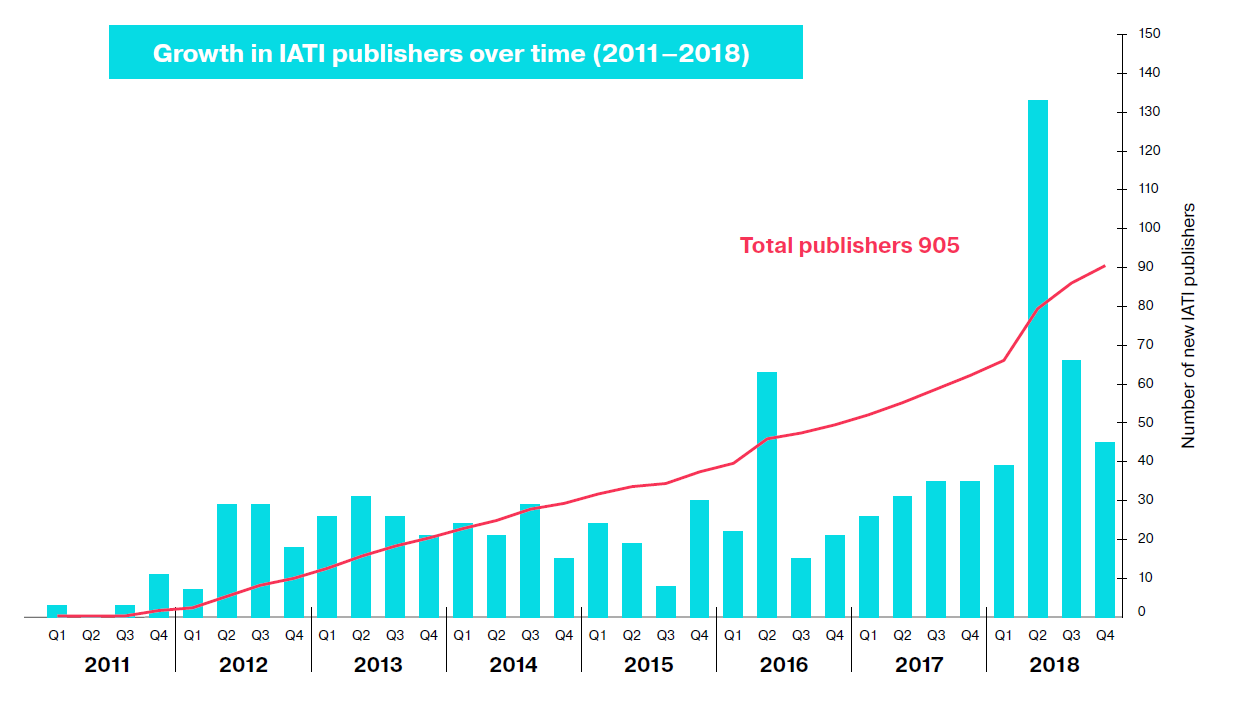UNDP head Achim Steiner reflects on 10 years of IATI
This blog has been written by Achim Steiner, UNDP Administrator and re-posted from undp.org

Over the past decade, UNDP has been a global leader in aid transparency.
As a founding member of the International Aid Transparency Initiative (IATI), we have been at the heart of a global transparency movement, working to make information on development and humanitarian resources open and accessible to all development partners.
As the coordinator of the IATI Secretariat for the last five years, UNDP is proud to have been a part of its remarkable progress. We are delighted to see the launch of 10th Anniversary edition of IATI’s Annual Report, which notes the tremendous impact that the initiative has made in advancing the transparency and open data agenda since its launch.
As the coordinator of the IATI Secretariat for the last five years, UNDP is proud to have been a part of its remarkable progress.
Over 950 governments, multilateral institutions, and civil society organizations have made the decision to openly publish details of their spending on more than one million development and humanitarian projects. This ensures that information on development resources is accessible and thus can be used for a variety of uses including coordination, forward planning and advocacy.

Thanks to the commitment from its members and the wider community, almost US$152 billion of spending was reported to IATI in 2018, a US$7 billion increase since 2017.
UNDP has also ‘walked the walk’, holding ourselves to the highest standards in our own implementation of the IATI Standard.
UNDP has also ‘walked the walk’, holding ourselves to the highest standards in our own implementation of the IATI Standard. We have published detailed information on more than 4,000 projects worth over US$5.5 billion in 2018, making this information available through our own transparency portal, open.undp.org, as well as through the IATI Registry.
Opening our books has made us more accountable to our donors and partners, and we’re proud that our efforts have led us to be ranked among the top four most transparent organisations in each of the past four independent Aid Transparency Index assessments. We will continue to make improvements to the quality and comprehensiveness of the data we publish. We will also continue to develop open.undp.org, for instance by adding satellite imagery to our active projects and by publishing disaggregated data on our contributions towards the Sustainable Development Goals and humanitarian activities.
IATI data can enable donors and multilateral agencies to better understand where their spending will have the greatest impact. Civil society organizations can see what interventions are taking place, where to improve coordination, and how to best avoid duplication. Citizens and journalists around the world can also consult IATI data to hold their governments to account in terms of spending and use of resources.
The availability and use of data through IATI, which can strengthen the effectiveness of aid to address poverty and crises, can serve as further catalyst to achieve the Sustainable Development Agenda by 2030.
The availability and use of data through IATI, which can strengthen the effectiveness of aid to address poverty and crises, can serve as further catalyst to achieve the Sustainable Development Agenda by 2030.
At UNDP, we see tremendous opportunities in supporting our government partners in their systemic use of IATI data, while governments themselves have seen the incredible benefits associated with the availability of such data. The Government of Madagascar has used IATI data to learn about more than US$830 million of spending on development and humanitarian projects in the country over a ten year period through IATI information that was not previously reported to them via traditional sources. With such information, governments can more effectively plan and coordinate activities using forward-looking IATI data.
As IATI’s strategic planning exercise for 2019-22 takes place, UNDP will continue to advocate for the more systematic use of IATI data by our partners in programme countries. It serves as a key tool for planning and coordination activities to support national development plans.